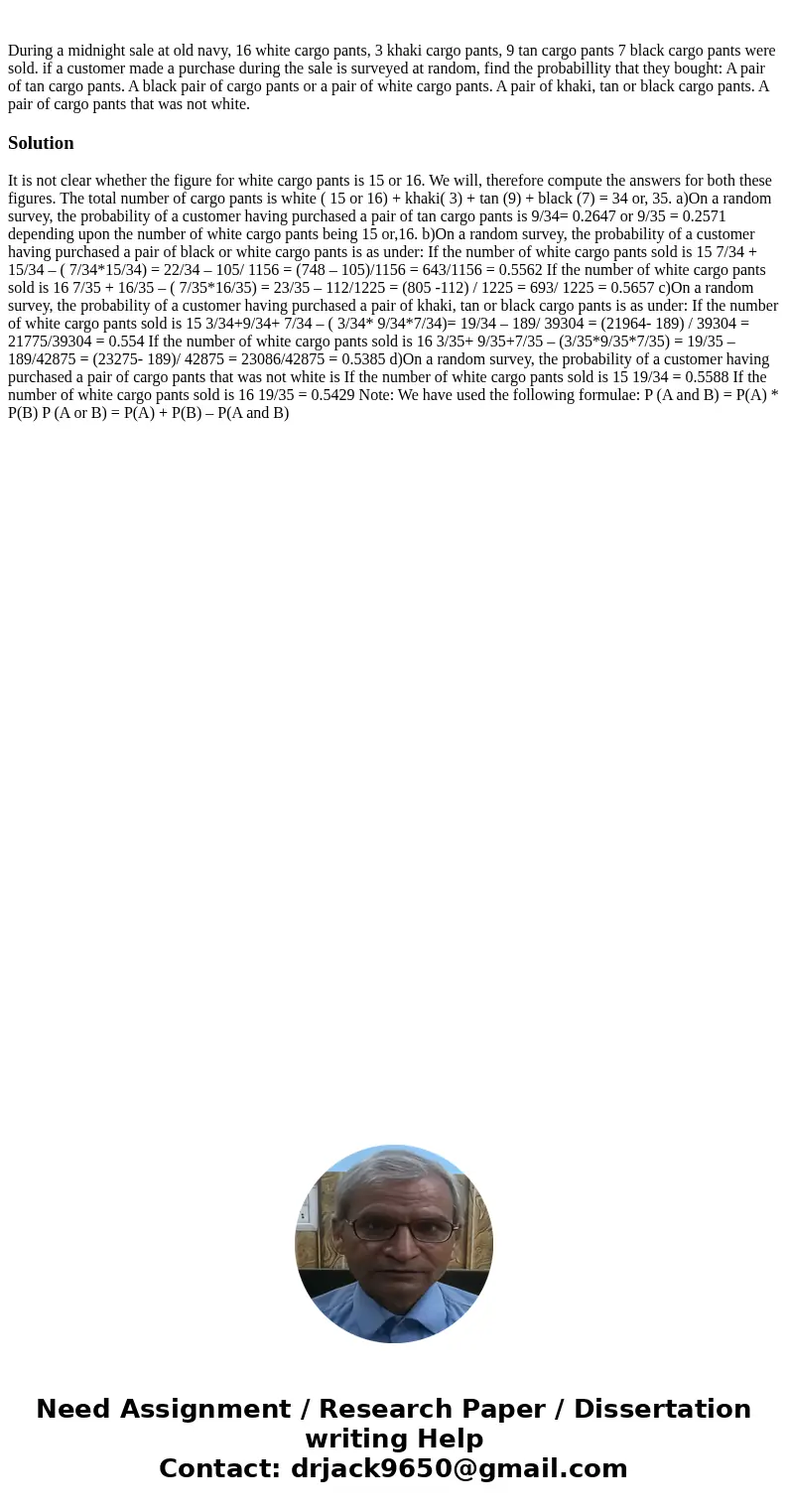During a midnight sale at old navy, 16 white cargo pants, 3 khaki cargo pants, 9 tan cargo pants 7 black cargo pants were sold. if a customer made a purchase during the sale is surveyed at random, find the probabillity that they bought: A pair of tan cargo pants. A black pair of cargo pants or a pair of white cargo pants. A pair of khaki, tan or black cargo pants. A pair of cargo pants that was not white.
It is not clear whether the figure for white cargo pants is 15 or 16. We will, therefore compute the answers for both these figures. The total number of cargo pants is white ( 15 or 16) + khaki( 3) + tan (9) + black (7) = 34 or, 35. a)On a random survey, the probability of a customer having purchased a pair of tan cargo pants is 9/34= 0.2647 or 9/35 = 0.2571 depending upon the number of white cargo pants being 15 or,16. b)On a random survey, the probability of a customer having purchased a pair of black or white cargo pants is as under: If the number of white cargo pants sold is 15 7/34 + 15/34 – ( 7/34*15/34) = 22/34 – 105/ 1156 = (748 – 105)/1156 = 643/1156 = 0.5562 If the number of white cargo pants sold is 16 7/35 + 16/35 – ( 7/35*16/35) = 23/35 – 112/1225 = (805 -112) / 1225 = 693/ 1225 = 0.5657 c)On a random survey, the probability of a customer having purchased a pair of khaki, tan or black cargo pants is as under: If the number of white cargo pants sold is 15 3/34+9/34+ 7/34 – ( 3/34* 9/34*7/34)= 19/34 – 189/ 39304 = (21964- 189) / 39304 = 21775/39304 = 0.554 If the number of white cargo pants sold is 16 3/35+ 9/35+7/35 – (3/35*9/35*7/35) = 19/35 – 189/42875 = (23275- 189)/ 42875 = 23086/42875 = 0.5385 d)On a random survey, the probability of a customer having purchased a pair of cargo pants that was not white is If the number of white cargo pants sold is 15 19/34 = 0.5588 If the number of white cargo pants sold is 16 19/35 = 0.5429 Note: We have used the following formulae: P (A and B) = P(A) * P(B) P (A or B) = P(A) + P(B) – P(A and B)

 Homework Sourse
Homework Sourse